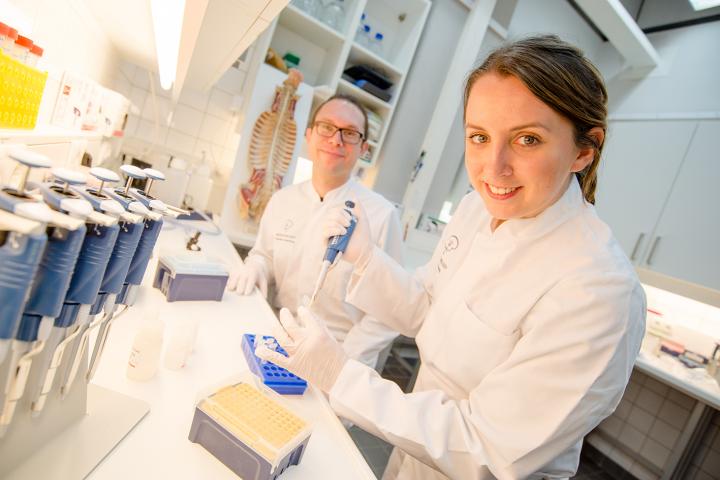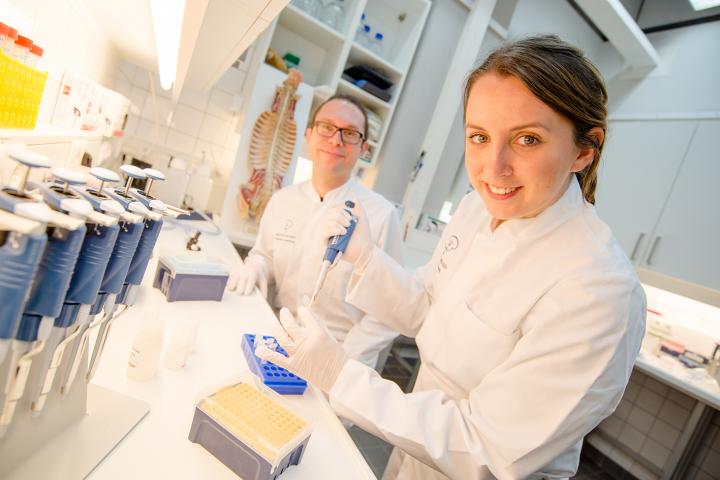
Credit: RUB, Marquard
A preference for the left or the right hand might be traced back to that asymmetry. "These results fundamentally change our understanding of the cause of hemispheric asymmetries," conclude the authors. The team report about their study in the journal eLife.
Preference in the womb
To date, it had been assumed that differences in gene activity of the right and left hemisphere might be responsible for a person's handedness. A preference for moving the left or right hand develops in the womb from the eighth week of pregnancy, according to ultrasound scans carried out in the 1980s. From the 13th week of pregnancy, unborn children prefer to suck either their right or their left thumb.
Arm and hand movements are initiated via the motor cortex in the brain. It sends a corresponding signal to the spinal cord, which in turn translates the command into a motion. The motor cortex, however, is not connected to the spinal cord from the beginning. Even before the connection forms, precursors of handedness become apparent. This is why the researchers have assumed that the cause of right respective left preference must be rooted in the spinal cord rather than in the brain.
The influence of environmental factors
The researchers analysed the gene expression in the spinal cord during the eighth to twelfth week of pregnancy and detected marked right-left differences in the eighth week — in precisely those spinal cord segments that control the movements of arms and legs. Another study had shown that unborn children carry out asymmetric hand movements just as early as that.
The researchers, moreover, traced the cause of asymmetric gene activity. Epigenetic factors appear to be at the root of it, reflecting environmental influences. Those influences might, for example, lead to enzymes bonding methyl groups to the DNA, which in turn would affect and minimise the reading of genes. As this occurs to a different extent in the left and the right spinal cord, there is a difference to the activity of genes on both sides.
###
Cooperation partners
For the study, the team from Ruhr-Universität Bochum collaborated with the Max Planck Institute for Psycholinguistics in the Netherlands as well as the Dutch Radboud University and the South-African Wellenberg Research Centre at Stellenbosch University.
Funding
The study was funded by the German Research Foundation (Gu227/16-1).
Original publication
Sebastian Ocklenburg et al.: Epigenetic regulation of lateralized fetal spinal gene expression underlies hemispheric asymmetries, in: eLife, 2017, DOI: 10.7554/eLife.22784 https://elifesciences.org/content/6/e22784
Press contact
Private lecturer Dr Sebastian Ocklenburg
Department of Biopsychology
Faculty of Psychology
Ruhr-Universität Bochum
Germany
Phone: +49-234-32-24323
Email: [email protected]
Judith Schmitz
Department of Biopsychology
Faculty of Psychology
Ruhr-Universität Bochum
Germany
Phone: +49-234-32-21775
Email: [email protected]
Media Contact
Sebastian Ocklenburg
[email protected]
49-234-322-4323
@ruhrunibochum
http://www.ruhr-uni-bochum.de





